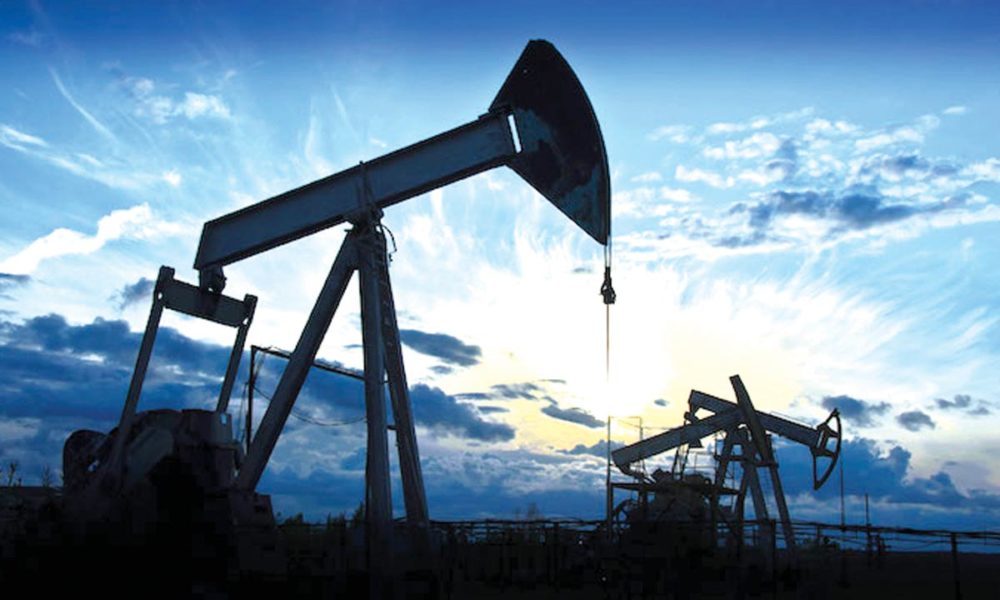Economy
OPEC: Nigeria Under Pressure to Join Oil Output Cuts

- OPEC: Nigeria Under Pressure to Join Oil Output Cuts
Ahead of the meeting of the Organisation of Petroleum Exporting Countries today (Thursday), other members of the group have expressed their eagerness to rescind Nigeria and Libya’s exemptions from oil production cuts and have them join efforts to ward off a supply glut.
The production cuts deal, which began on January 1, 2017, indicated that OPEC countries and 10 non-OPEC producers led by Russia would cut a combined 1.8 million barrels per day in supplies to tackle oversupply and prop up prices.
It was later extended till the end of 2018.
Nigeria and Libya were exempted from the cuts as they dealt with internal unrest that had targeted their oil infrastructure.
OPEC’s main advisory board said last month that the group needed to cut oil production to avoid an oversupplied market in 2019.
Earlier in November, OPEC secretariat said in a report that the group needed to pump 1.36 million barrels per day less next year than it did in October to avoid flooding the oil market in 2019.
OPEC pumped 32.9 million bpd in October, as Saudi Arabia boosted production sharply, compared with 32.3 million bpd in January.
Delegates attending the OPEC meeting in Vienna told S&P Global Platts on Wednesday that they would be asking Nigeria and Libya to accept a production cut quota if OPEC could reach a new supply accord.
“We are hopeful that they will come around this time and understand that everyone has to cut together,” an OPEC delegate was quoted as saying, asking not to be named because of the sensitivity of the discussions.
The delegate added that both countries had made significant improvements to their production since the current deal went into force in January 2017, and it was time for them to “contribute.”
Production from Libya has surged by 520,000 bpd, or more than double, from the October 2016 baseline on which the 1.8 million bpd cuts were based, while Nigerian output has risen by 210,000 bpd, or 13 per cent, according to S&P Global Platts OPEC survey data, though both have had volatile swings.
Saudi Energy Minister Khalid al-Falih has in recent weeks travelled to Libya and Nigeria to press them on the exemptions, though no public commitments have been announced.
Falih, after meeting with Nigeria’s Minister of State for Petroleum Resources, Dr Ibe Kachikwu, in Abuja last month, said some OPEC members “were complaining” in the summer that the two countries were “overproducing” and contributing to rising OPEC production.
“We have seen a great deal of stability and consistency, both operationally and, more importantly, in terms of security and bringing the sector back to normal,” Falih said.
The Head of Libya’s National Oil Corporation, Mustafa Sanalla, has been very vocal in saying that Libya expects to maintain its exemption, as its output remains extremely prone to the political instability that has plagued the violence-wracked country since 2011.
Libya pumped 1.05 million bpd in November, according to the latest Platts OPEC survey, far below its pre-2011 capacity of 1.6 million bpd.
For Nigeria, cutting output could be tricky, as its oil production is set to climb to around 2.2 million bpd by early 2019, with the startup of the giant 200,000 bpd Egina field due in the coming weeks.
Nigerian oil production has also recovered steadily after it has slumped to around a 30-year low in mid-2016 due to attacks on its key oil infrastructure in the oil-rich Niger Delta.
But state-owned Nigerian National Petroleum Corporation recently warned that sabotage of its facilities was on the rise, and the country’s general elections in February could bring more instability.
Kachikwu, after meeting with Falih, said it was too early to talk about exemptions. But in a nod to the pressure, he said he would work closely with the six-country OPEC/non-OPEC monitoring committee chaired by Falih to ensure that Nigeria does not upset the coalition’s market balancing efforts.
“Since the last exemption, Nigerian [production] has been coming up a bit…our national oil company has been able to raise volumes up from where we were before at the time the exemptions were granted, and so we would work within those parameters and see what our responsibilities are to OPEC,” Kachikwu said.
The Chairman/Chief Executive Officer, International Energy Services Limited, Dr Diran Fawibe, told our correspondent on Wednesday that “Nigeria cannot afford to distance itself from any policy that will stabilise the global oil price.”
A petroleum expert, Mr Bala Zakka, said he would expect Nigeria to join the production cuts deal given that the country and Libya had been exempted for two years.
He said the two countries should adhere to whatever restrictions or quotas they would be given.